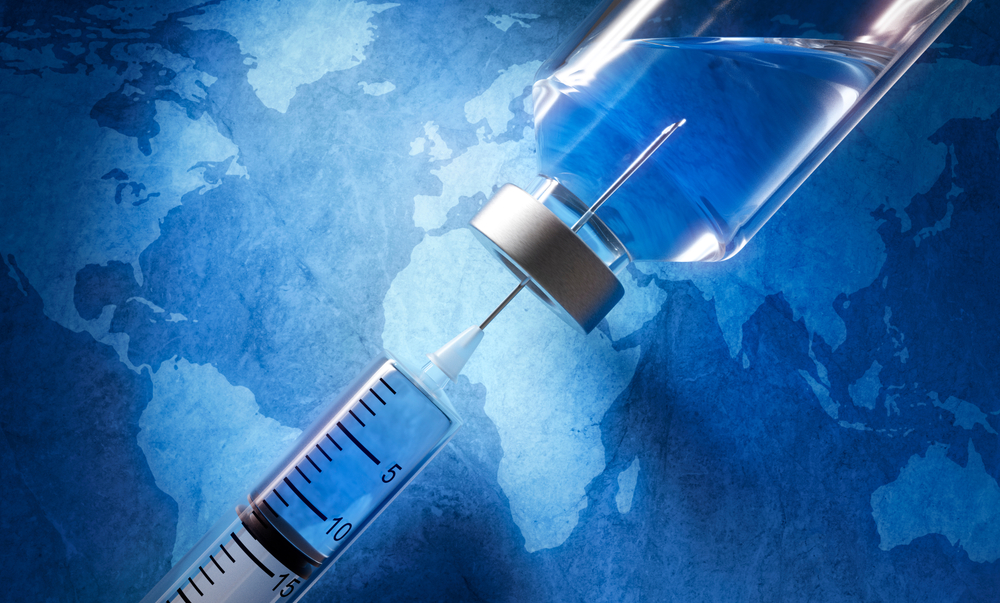A group of institutional investors worth USD13 trillion, including Aviva Investors, AXA Investment Managers, and Fidelity International, has pledged to support fair and equal global access to vaccines and healthcare in the fight against coronavirus.
A group of institutional investors worth USD13 trillion, including Aviva Investors, AXA Investment Managers, and Fidelity International, has pledged to support fair and equal global access to vaccines and healthcare in the fight against coronavirus.
Last week, the United Nations secretary general António Guterres labelled the global vaccination effort “wildly uneven and unfair” in a security council meeting.
Three quarters of all vaccinations have so far been administered by just 10 countries, while 130 countries have not yet received a single dose.
Led by the Access to Medicine Foundation, the investor partnership aims to improve financing and co-operation on worldwide vaccination efforts.
The investors say they are concerned about limited funding for the World Health Organisation’s ACT Accelerator global healthcare access scheme, which includes vaccination wing Covax, and the effect this will have on the “trajectory of the pandemic and global economic activity in the coming years”.
Ghana received its first delivery of Covid-19 vaccines on Wednesday through Covax, which is aiming to distribute 337 million doses of vaccine globally by summer, rising to 2.3 billion by the end of the year.
The investor partnership is calling on G7 and G20 world leaders to fully finance the ACT Accelerator. The scheme has so far raised under a third of the capital it needs to carry out its planned rollout of tests, treatments and vaccines in 2021.
Last week, new commitments from USA, Germany, the European Commission, Japan, and Canada left a funding gap of USD22.9 billion for the year.
The investors have also pledged to engage with investee healthcare companies on issues such as speeding up development and production of vaccines, and employing fair pricing strategies, in order to support the ACT Accelerator.
Finally, the investors are calling on governments and international organisations to explore new ways of financing national and global Covid-19 responses, similar to new vaccine bonds or social bonds.
“Collective action at the global level is essential to address this pandemic. The economic and financial damage triggered by Covid-19 knows no border. Symmetrically, a full and lasting recovery will need to be global. If we allow the pandemic to survive in any regions, every country, even those with the most advanced healthcare systems and thorough vaccination programmes, will remain at risk,” says Marco Morelli, executive chairman, AXA Investment Managers.
Morelli adds that access to medicine has been a “priority” for AXA’s engagement with the pharmaceutical industry for several years, with the investment firm engaging with more than 60 healthcare companies in 2020 alone.
“For long-term investors with a globally diversified portfolio and credible responsible investment policies, a fair and equitable global response to the current pandemic is a no-brainer,” says Damiano de Felice, director of Strategy of the Access to Medicine Foundation. “It saves lives, it offers a huge return on investment and it mitigates the systemic risks associated with new virus variants.”
The global economy stands to lose as much as USD9.2 trillion if governments fail to ensure that developing economies gain access to Covid-19 vaccines, according to a study from the International Chamber of Commerce Research Foundation. This dwarfs the USD38 billion estimated cost of funding the ACT Accelerator.
De Felice adds that institutional investors have “unique capabilities” in aiding access to medicine. “On the equity side, they can speak directly to the senior management of their investee healthcare companies and ensure that essential Covid-19 tools are developed as rapidly and distributed as widely as possible. On the credit side, they can deploy billions of dollars to support the global economic recovery through innovative finance mechanisms that fund public and private programmes dedicated to pandemic response and preparedness,” he says.
The statement has been signed by 148 asset managers and asset owners including AllianceBernstein, Columbia Threadneedle, EOS at Federated Hermes, Insight Investment, Nomura Asset Management, Schroders and Sumitomo Mitsui Trust Asset Management.







